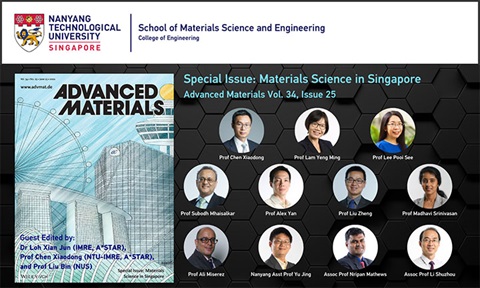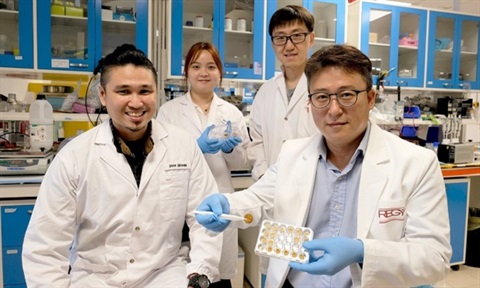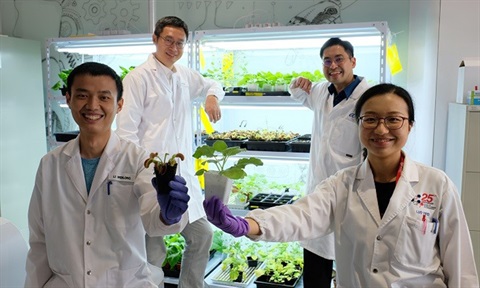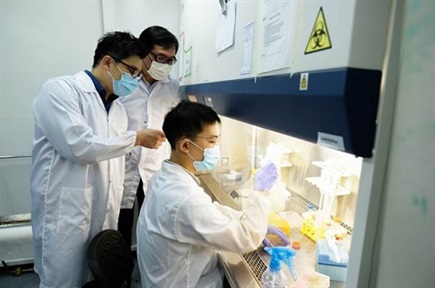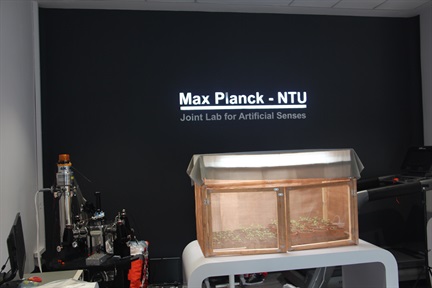NTU Singapore scientists develop ‘mini-brains’ to help robots recognise pain and to self-repair – Associate Professor Nripan Mathews
We are delighted to share the research achievement of Associate Professor Nripan Mathews and his team, which has been featured in various media.
Using a brain-inspired approach, Associate Professor Nripan Mathews, together with Associate Professor Arindam Basu (EEE, NTU) have developed a way for robots to have the artificial intelligence (AI) to recognise pain and to self-repair when damaged. The system has AI-enabled sensor nodes to process and respond to 'pain' arising from pressure exerted by a physical force. The system also allows the robot to detect and repair its own damage when minorly 'injured', without the need for human intervention.
The new NTU approach embeds AI into the network of sensor nodes, connected to multiple small, less-powerful, processing units, that act like 'mini-brains' distributed on the robotic skin. This means learning happens locally and the wiring requirements and response time for the robot are reduced five to ten times compared to conventional robots, say the scientists. Combining the system with a type of self-healing ion gel material means that the robots, when damaged, can recover their mechanical functions without human intervention.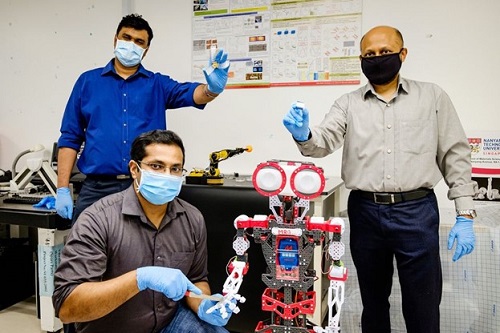
From left: Associate Professor Nripan Mathews, Dr Rohit Abraham John and Associate Professor Arindam Basu developed a way for robots to have the artificial intelligence (AI) to recognise pain and to self-repair when damaged. Photo Credit: NTU
The breakthrough research was published in the peer-reviewed scientific journal Nature Communications in August, with the title “Self healable neuromorphic memtransistor elements for decentralized sensory signal processing in robotics”. The research article can be found via this link:https://www.nature.com/articles/s41467-020-17870-6.
Our heartiest congratulations to Prof Mathews and his team on the excellent achievement!
Media Coverage:
Lianhe Zaobao, page 12 and online
India Times (IN), 15 Oct
IT Web (SA), 15 Oct
Mirage News (AU), 15 Oct
La Republica (PT)
Plant Engineering (US)
Tech Xplore (US)
Science Daily (US)

